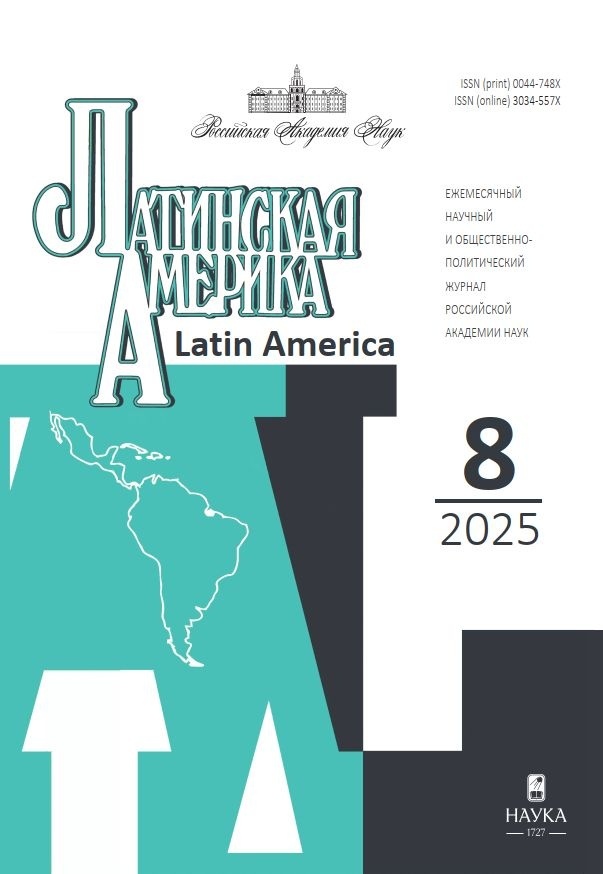The Transformation of the Concept of National Identity in Contemporary Brazil: A Conflict of Narratives
- 作者: Kuznetsova V.1
-
隶属关系:
- Institute of Latin American Studies of RAS
- 期: 编号 8 (2025)
- 页面: 7-21
- 栏目: Society
- URL: https://rjdentistry.com/0044-748X/article/view/691047
- ID: 691047
如何引用文章
详细
This article examines narratives that highlight the transformation of the foundations of Brazilian national identity, which manifest at the level of political decisions, legislative initiatives, and public discourse. Public strategies concerning collective memory, particularly commemoration practices, are considered as fundamental elements in constructing collective identity. Using the methodological tools of memory studies, the article identifies memory frameworks formed around two dates in Brazil's holiday calendar, both tied to the shared historical theme of slavery abolition—a pivotal event shaping modern Brazil.
While the May 13 holiday conveys a narrative of national reconciliation and unity by emphasizing the efforts of abolitionists and the political gesture of Brazil's monarchy in voluntarily abolishing slavery, Black Consciousness Day on November 20 focuses on the resistance of enslaved people themselves, imbuing the date with heroic and partly mythologized content.
These commemorative practices reflect two mutually exclusive national identity projects constructed around the category of race. The first is based on the ideology of racial democracy, which centers on the theory that the Brazilian people emerged from a harmonious process of miscegenation. In contrast, the second project, rooted in the concept of Black consciousness, attributes a distinct identity to descendants of African slaves, positioning them as claimants to a unique national status.
作者简介
Varvara Kuznetsova
Institute of Latin American Studies of RAS
编辑信件的主要联系方式.
Email: variaroll@inbox.ru
ORCID iD: 0000-0001-7875-1398
научный сотрудник Центра культурологических исследований
俄罗斯联邦, 21/16, B. Ordynka, Moscow, 115035, Russian Federation参考
补充文件








